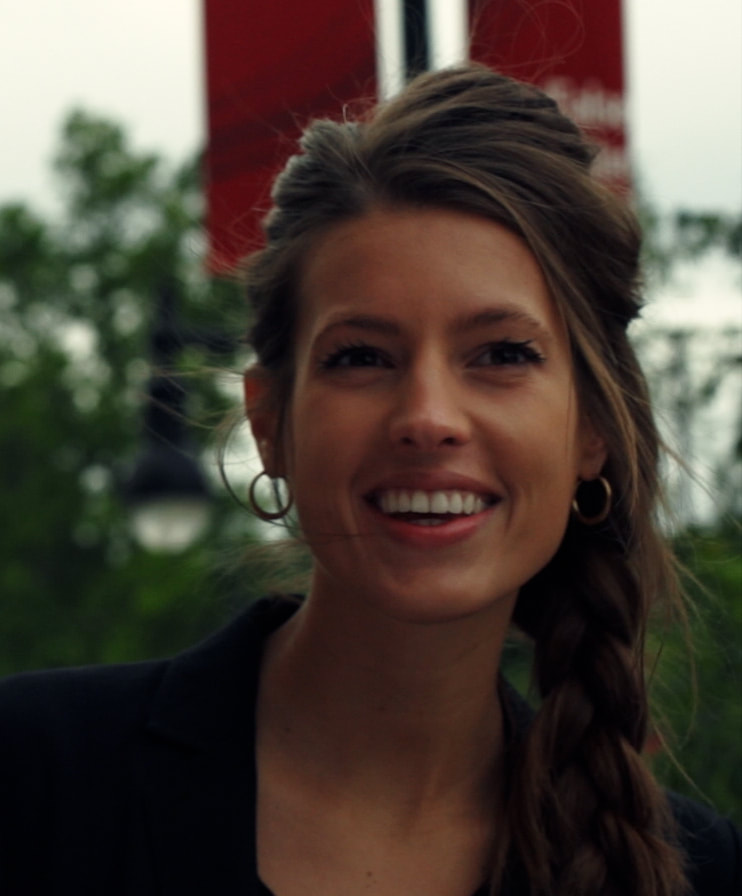Meet Summer Creative Writing Academy Visiting Writer Elizabeth McConaghy
|
Elizabeth McConaghy received her MFA in Creative Nonfiction at the University of Missouri, St. Louis. She received her PhD in English and Creative Writing at the University of Missouri, Columbia. Her work has appeared in The Iowa Review, Western Humanities Review, Hayden's Ferry Review, Barrelhouse Magazine, The Southeast Review, and others. Her essays have been nominated for two Pushcart Prizes. Her manuscript, Migrations, was a 2017 semi-finalist for the Deborah Tall Lyric Essay Book prize and a 2016 finalist for the Kore Press Memoir Award.
|
5 Questions for Elizabeth McConaghy
When did you first know you wanted to be a writer?
As a kid, I used to hide during my sister’s parties and take notes on conversations I overheard. I still would if it weren’t weird adult behavior, also ethically questionable. I was lucky to grow up in a house with a lot of books and a mom who noticed early on that I was observant and encouraged me to write it all down. Being a writer always seemed cool to me. Figuring out how to make a living while writing was—still is—the question.
Who are your writer/teacher influences?
I like writers experimenting with genre: Claudia Rankine, Maggie Nelson, Jenny Boully. Writers who can’t be classified. I’ve been working on a long nonfiction project, which has me reading fiction and poetry—this summer Adrienne Rich on repeat. I just finished Chimamanda Ngozi Adichie’s Americanah and the last line has been running through my head on a loop.
What do you think the role of the writer is or should be in today's society?
It’s overwhelming trying to make sense of the garbage fire that is the present moment. As artists, we make sense of the world, or attempt to, through our work. But I don’t think that means polemics. Writers should tell the truth—what the individual’s experience of living in the world is. Telling that truth creates an opportunity for empathy. Ta-Nehisi Coates had an essay in the Atlantic this summer about Kanye West that really typifies this move. He’s calling attention to a broader truth—that the past is present. He’s working to understand another human being, and he’s giving the reader insight into his own connected experience. That’s meaningful work.
What are your suggestions for beginners who want to become writers?
Pay attention to what fascinates you. Do not be concerned with how impressive your fascinations are. If you’re trying to be fancy, it will show, and if you’re following genuine curiosity, that will show, too. Try not to reread your work while you’re working on it. It’s going to be terrible and you’ll get discouraged. Keep writing until the energy goes out of generating material, then you get to go back and make it good.
If you could meet and chill out with 1 writer, living or dead, who would that be and why?
I’m trying to think of one writer I could be cool around, and I’m coming up short. I got drinks in a group with Colson Whitehead once and could not say a word. He did recommend The Americans, which was helpful TV advice. Any of the above writers I would be thrilled to get close enough to eavesdrop on. Probably the best I could do.
As a kid, I used to hide during my sister’s parties and take notes on conversations I overheard. I still would if it weren’t weird adult behavior, also ethically questionable. I was lucky to grow up in a house with a lot of books and a mom who noticed early on that I was observant and encouraged me to write it all down. Being a writer always seemed cool to me. Figuring out how to make a living while writing was—still is—the question.
Who are your writer/teacher influences?
I like writers experimenting with genre: Claudia Rankine, Maggie Nelson, Jenny Boully. Writers who can’t be classified. I’ve been working on a long nonfiction project, which has me reading fiction and poetry—this summer Adrienne Rich on repeat. I just finished Chimamanda Ngozi Adichie’s Americanah and the last line has been running through my head on a loop.
What do you think the role of the writer is or should be in today's society?
It’s overwhelming trying to make sense of the garbage fire that is the present moment. As artists, we make sense of the world, or attempt to, through our work. But I don’t think that means polemics. Writers should tell the truth—what the individual’s experience of living in the world is. Telling that truth creates an opportunity for empathy. Ta-Nehisi Coates had an essay in the Atlantic this summer about Kanye West that really typifies this move. He’s calling attention to a broader truth—that the past is present. He’s working to understand another human being, and he’s giving the reader insight into his own connected experience. That’s meaningful work.
What are your suggestions for beginners who want to become writers?
Pay attention to what fascinates you. Do not be concerned with how impressive your fascinations are. If you’re trying to be fancy, it will show, and if you’re following genuine curiosity, that will show, too. Try not to reread your work while you’re working on it. It’s going to be terrible and you’ll get discouraged. Keep writing until the energy goes out of generating material, then you get to go back and make it good.
If you could meet and chill out with 1 writer, living or dead, who would that be and why?
I’m trying to think of one writer I could be cool around, and I’m coming up short. I got drinks in a group with Colson Whitehead once and could not say a word. He did recommend The Americans, which was helpful TV advice. Any of the above writers I would be thrilled to get close enough to eavesdrop on. Probably the best I could do.

